Perception Neuron Inertial Motion Capture vs Optical Mocap Systems and the First Production Motion Capture Session Experience
Well, the first motion capture session is over and I finally managed to find time to write a post about this exciting experience. The video of the process is still in progress and I will probably be able to post it after finalizing the 4-th and final redaction of the previz.
Or not, since it's getting more and more difficult to find time for logging. Go figure.
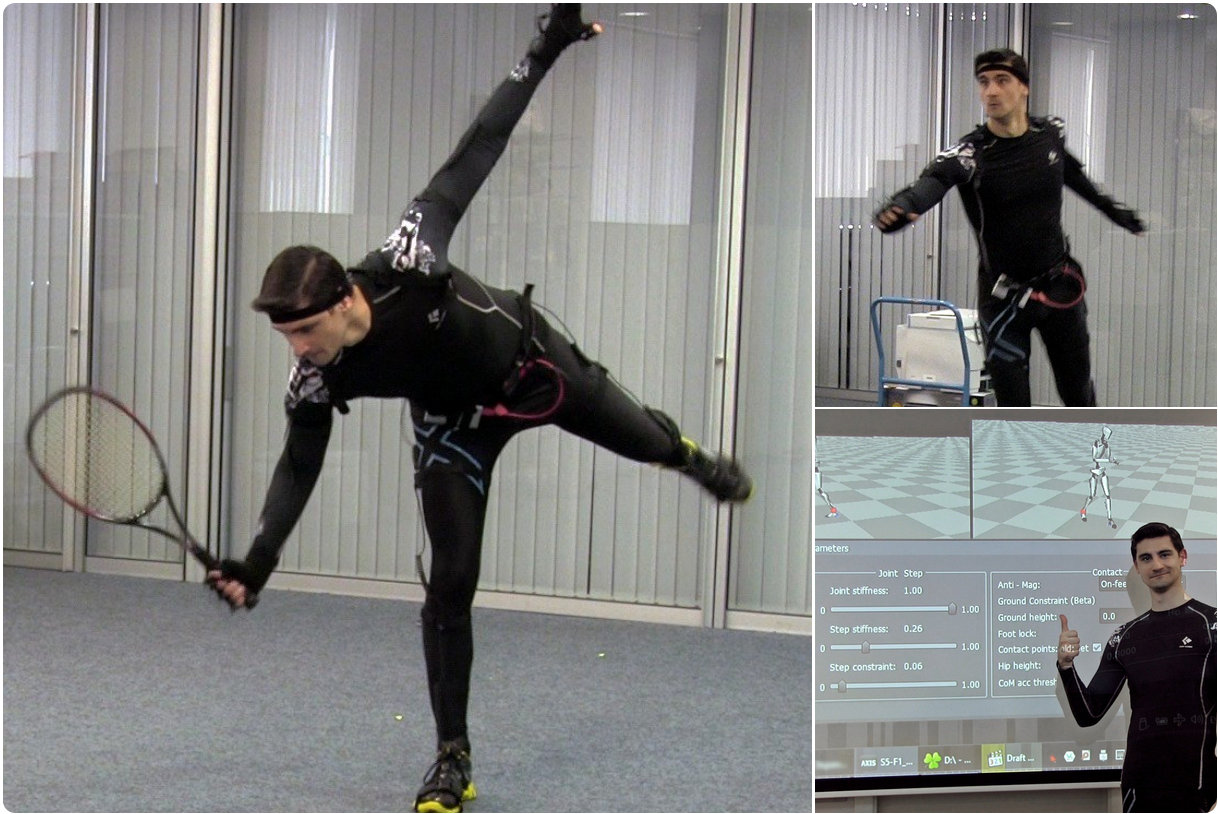
Hence today I'll mostly talk nonsense about the differences between optical and inertial motion capture systems and what pros and cons the latter can have in comparison with traditional optical systems like Optitrack. It's something I had to study before investing into the full inertial Neuron MoCap kit to make sure I'd get the most bang for buck when recording action sources for the film.
Optical tracking systems
Pretty sure you're familiar with those "classic" motion capture markers used by cameras and specialized software to track each marker's spacial data for transferring calculated translation onto 3D objects or skeletons. If not, here's an excellent article at Engadget to get you up to speed.
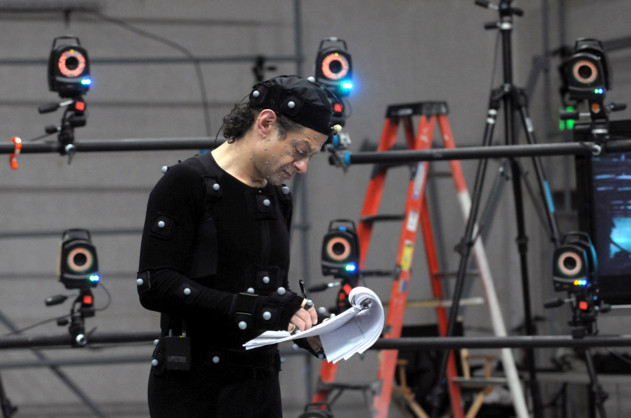 Looking good, Mr. Serkis!
Looking good, Mr. Serkis!Among optical MoCap solutions OptiTrack is arguably one of the better known ones. Guys at OT aim at providing the most affordable optical MoCap cameras and gear. Here's the simplest set-up one would need to capture motion using an optical MoCap system:
Getting Ready for the First Production Mocap Session and Some Motion Capture Examples
I've been quite busy playing with the Perception Neuron 32-sensor Motion Capture kit recently. Long story short, it's an amazing affordable inertial full-body MoCap solution which can produce seriously impressive captures (some amateur examples below). By affordable I mean really affordable, since the only rival that comes to mind is the Xsens MVN suit which has a starting price of about $12,000. You can now clearly understand why I was so excited to receive my very own complete inertial MoCap suit for a fraction of the price of Xsens.
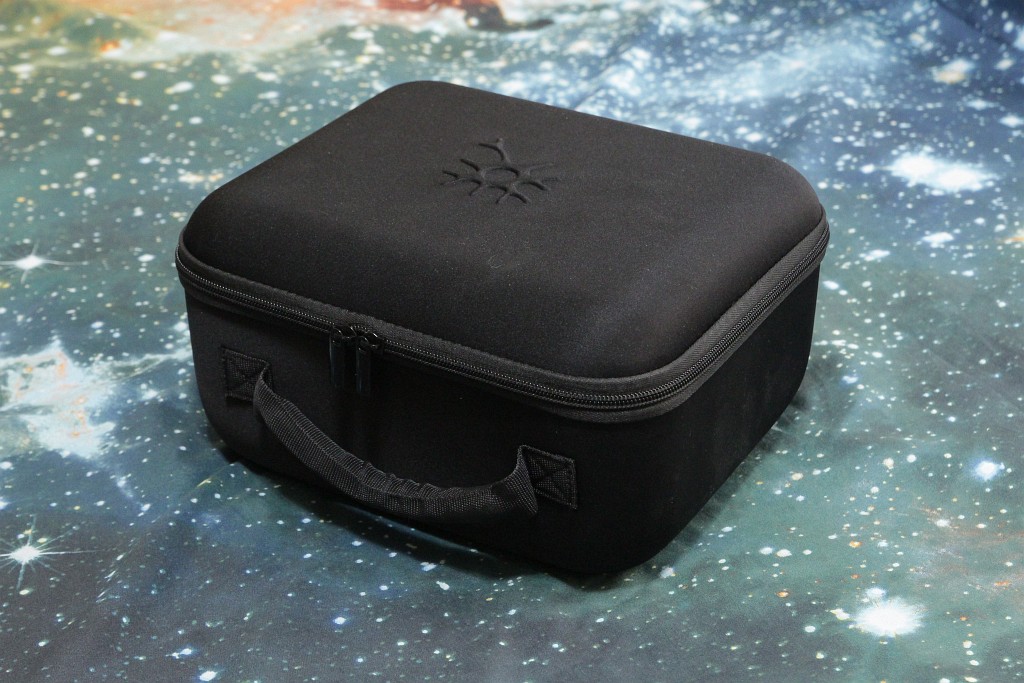
I received it about a week ago (not long after I reviewed the 6-neuron Lite kit) and still can't stop wondering how NOITOM team were able to achieve such level of performance with such democratic pricing.
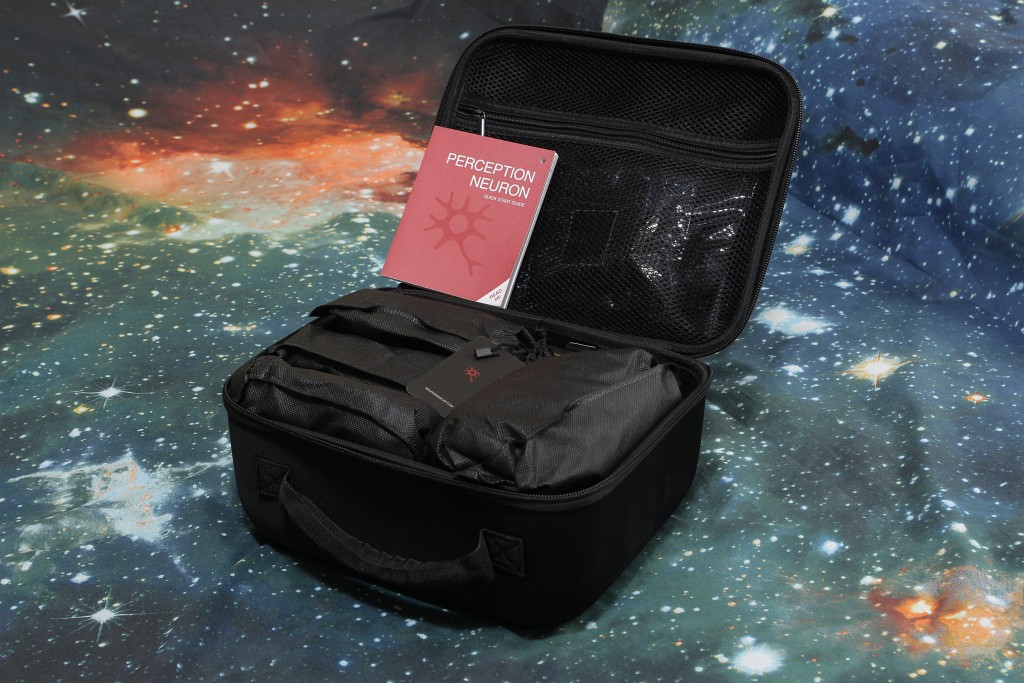
The kit comes with everything you'll need to start capturing right away (apart from a 2-amp USB powerbank you will need to do captures over WiFi).
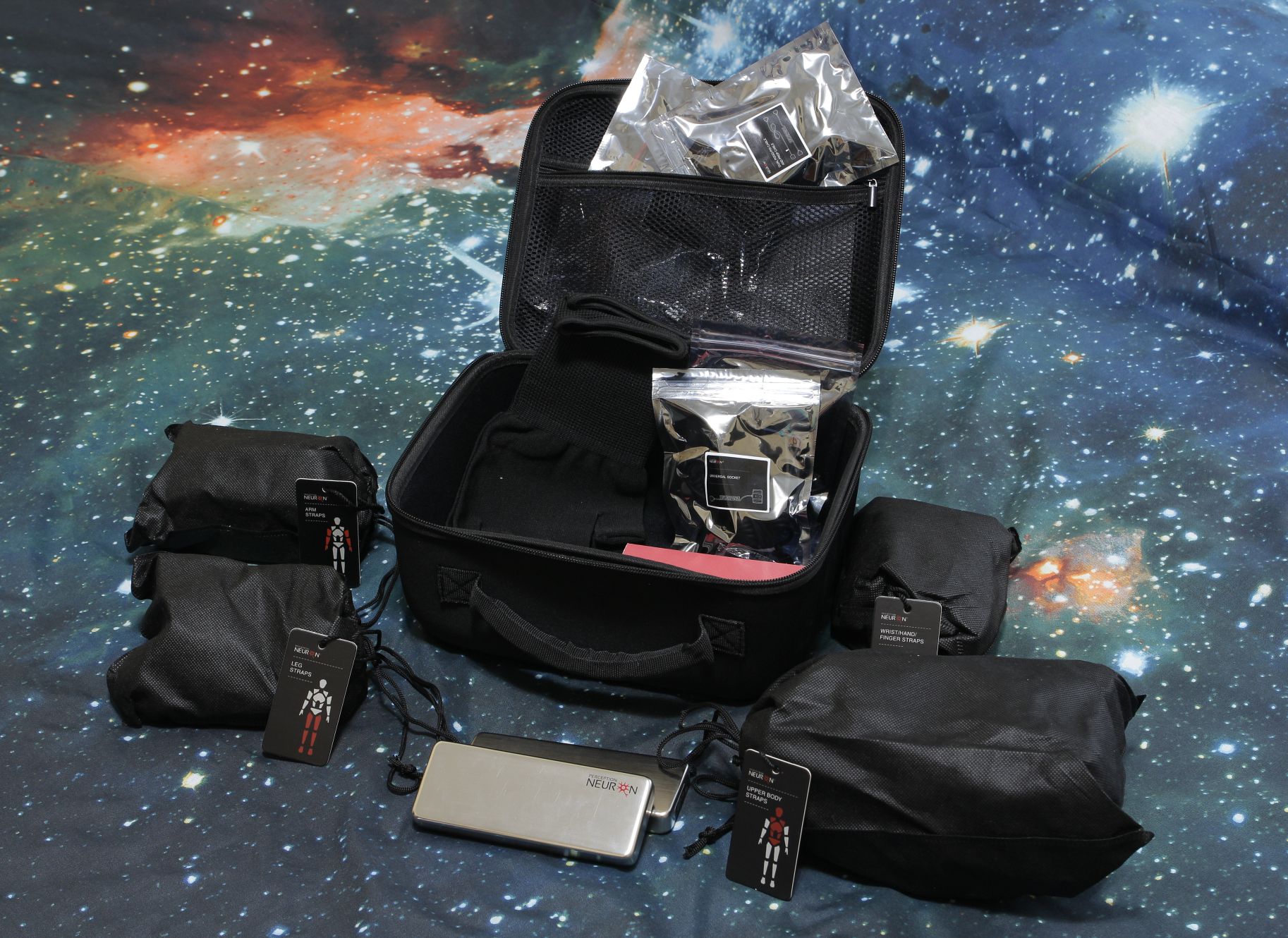
Everything is neatly packed and grouped by the body part. Cool thing is that this is a universal MoCap system. That is, you can only equip certain parts and connect them to the hub and capture, in case you don't need the data from all 32 neurons.
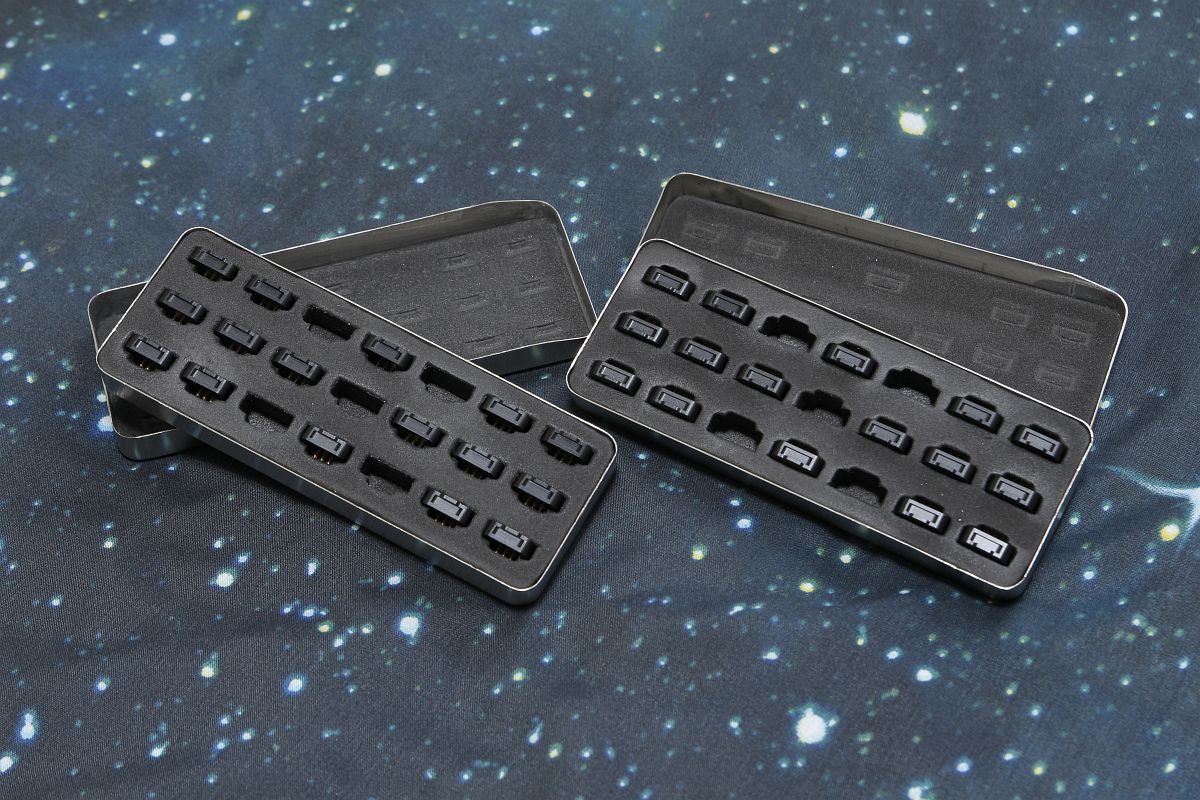 The magnificent neurons
The magnificent neuronsI've also found out that the neurons' cases (not storage cases, actual sensors) are made of aluminum, so they are very sturdy which helps, since you need to pop them in and out every time you put on the suit and take it off respectively.
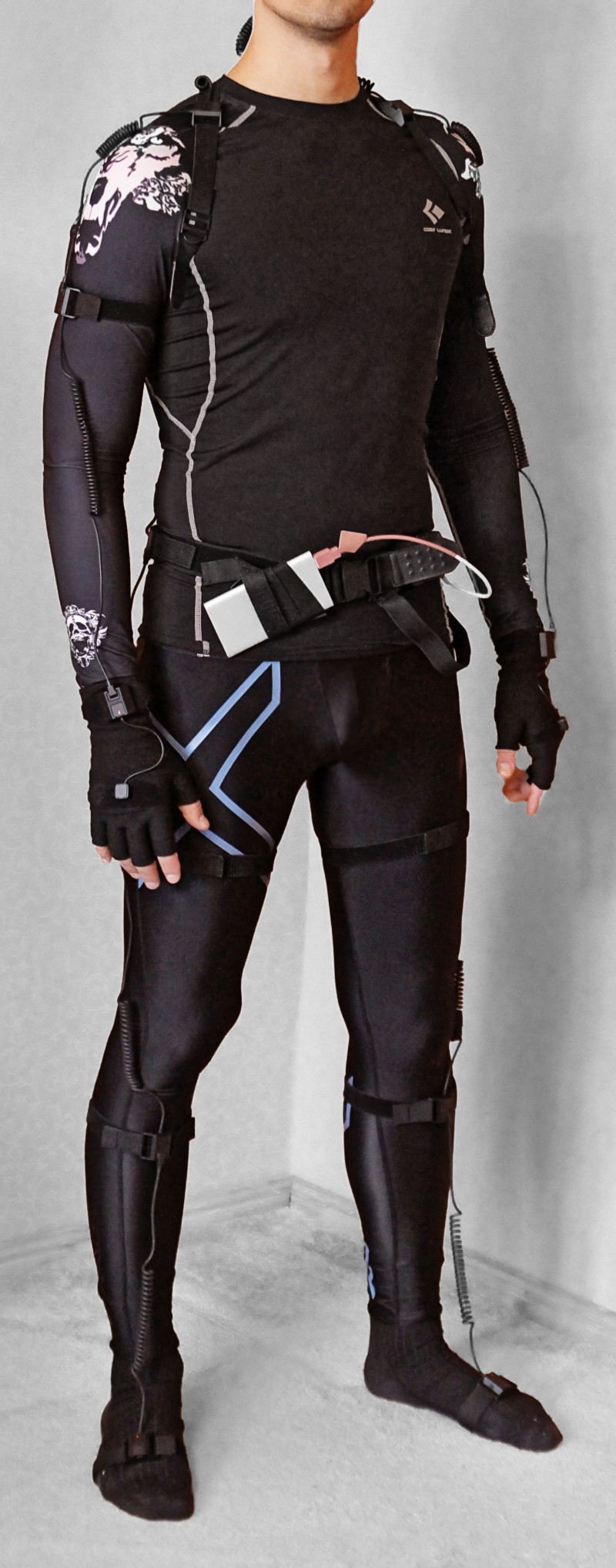 Does anyone else get the "Minority report" vibe?
Does anyone else get the "Minority report" vibe?I believe the gloves are the highlight of the system:
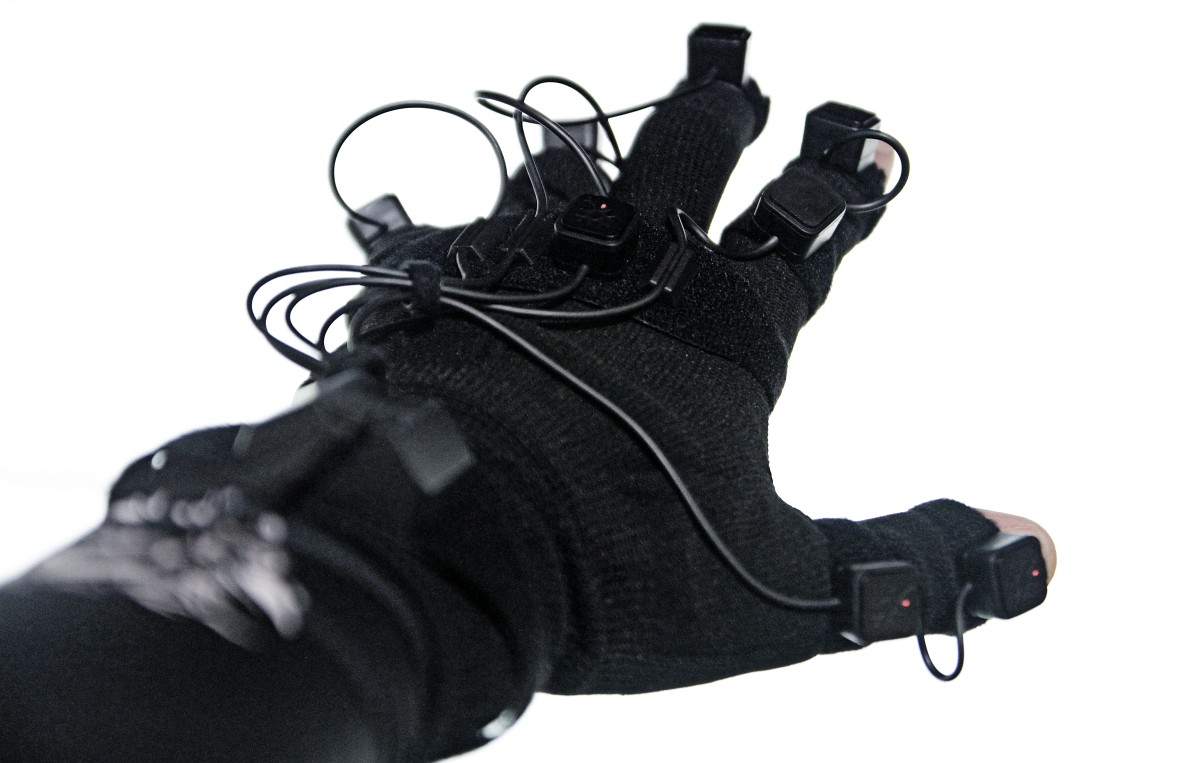 Perception Neuron MoCap gloves
Perception Neuron MoCap glovesBeing able to capture hands is really something! Imagine animating all those digits frame by frame! Granted, captured data is not production-ready off the bat, but it's stable enough you can get to cleaning right away and save tens, no, hundreds of hours on animation!
This saturday I will be doing my very first motion capture session. To satisfy your curiosity while I record and edit the MoCap session video, I quickly put together a couple of short clips I produced while testing the kit.
In the video:
- The very first attempts at capturing and re-targeting raw motion capture data (hence shaky) without any filtering whatsoever.
- Demonstration of how full-body capture with hands and fingers can help tell a story in real-time.
- Finished re-targeting rig and a nuanced finger capture. One-click filtering only.
- Just some random rendered scene.
Note: one of those will probably end up as a very short animation I will do before the main 8-minute film to practice every aspect of a feature production. Try to guess which one it is. =)
Well done, NOITOM, really, really well done... Thank you for making top-quality affordable MoCap available for the masses!

Thank you for reading and stay tuned for more MoCap related posts.
Quick review and test of the Perception Neuron Lite MoCap system
Noitom specializes in affordable inertial motion capture devices and software, specifically their own line of MoCap systems called Perception Neuron.
Yesterday I finally received my Perception Neuron Lite kit which is a 6-neuron system for those who want to interact with 3D objects in a virtual reality headset or are just looking to try out Perception Neuron before investing into a complete 18- or 32-neuron kits. I was interested in Noitom tech since the first days they started their Kickstarter campaign back in 2014, so it's only natural I jumped the bandwagon and ordered one as soon as the opportunity presented itself.
This is what arrived with the order and what I'll briefly review:
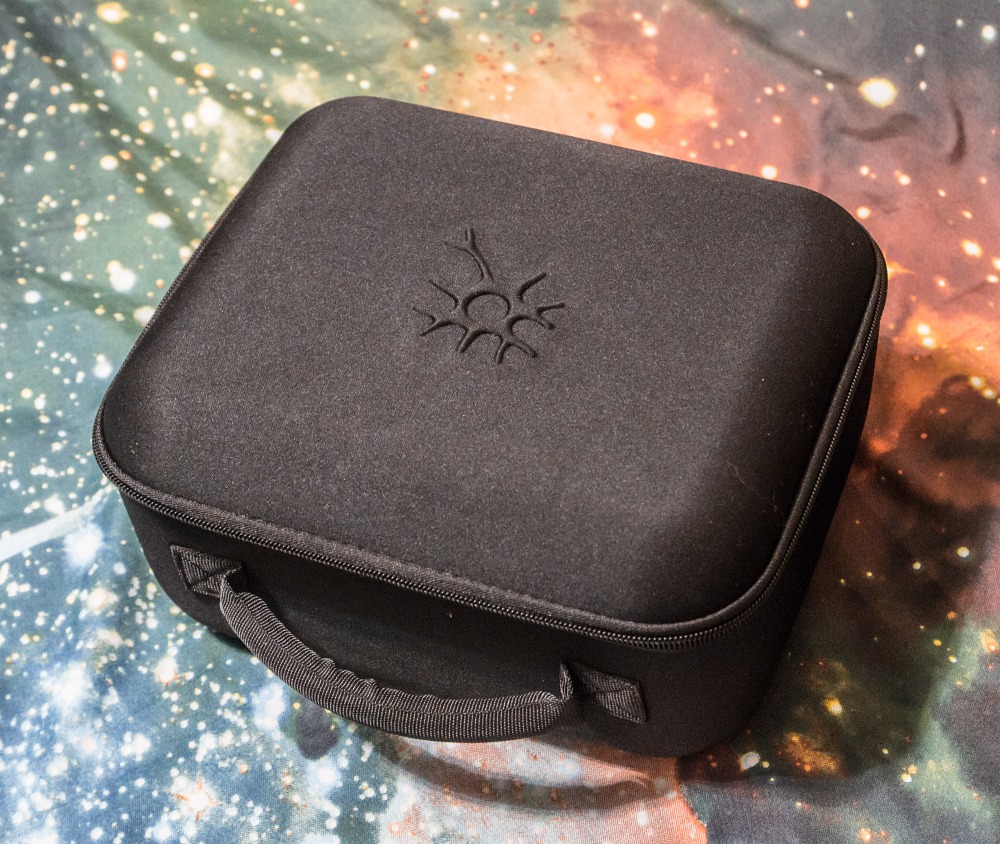
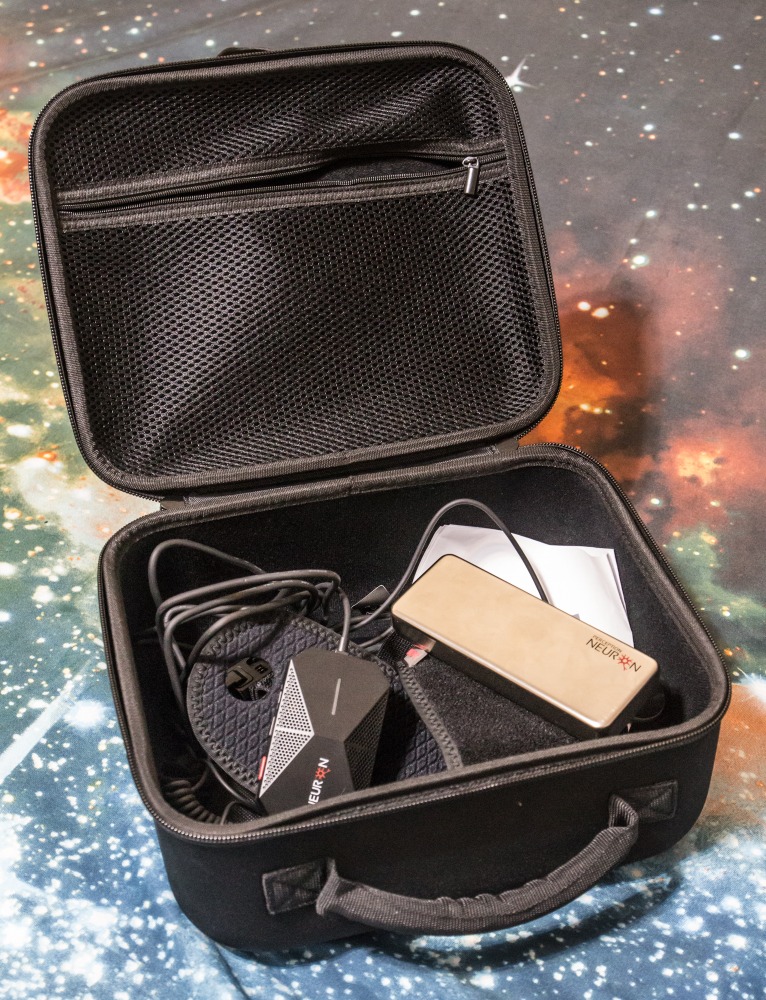
It's important to remember that this is an inertial MoCap system, which means it comes with extremely sensitive sensors which only work in a relatively magnetically safe environment. They are so sensitive in fact, that they come in a special anti-mag container. After use they should always reside inside to make sure they don't magnetize which would render them useless.
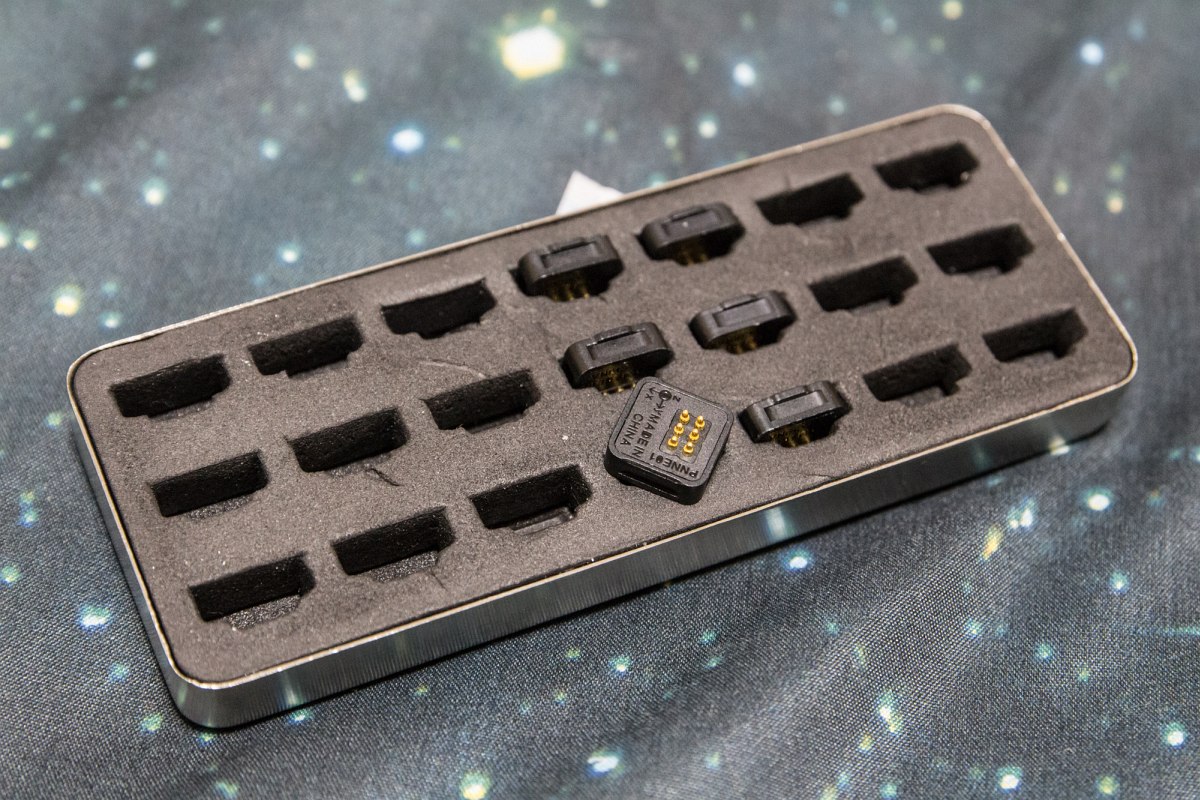
Having said that I must admit that I had no issues whatsoever using them even in close proximity to a monitor screen, PC and even my Wi-Fi router. There's also a crazy amount of Wi-Fi networks available all around the apartment so all I can say is – the system worked like a charm even in such non-perfect conditions which was a very pleasant surprise!
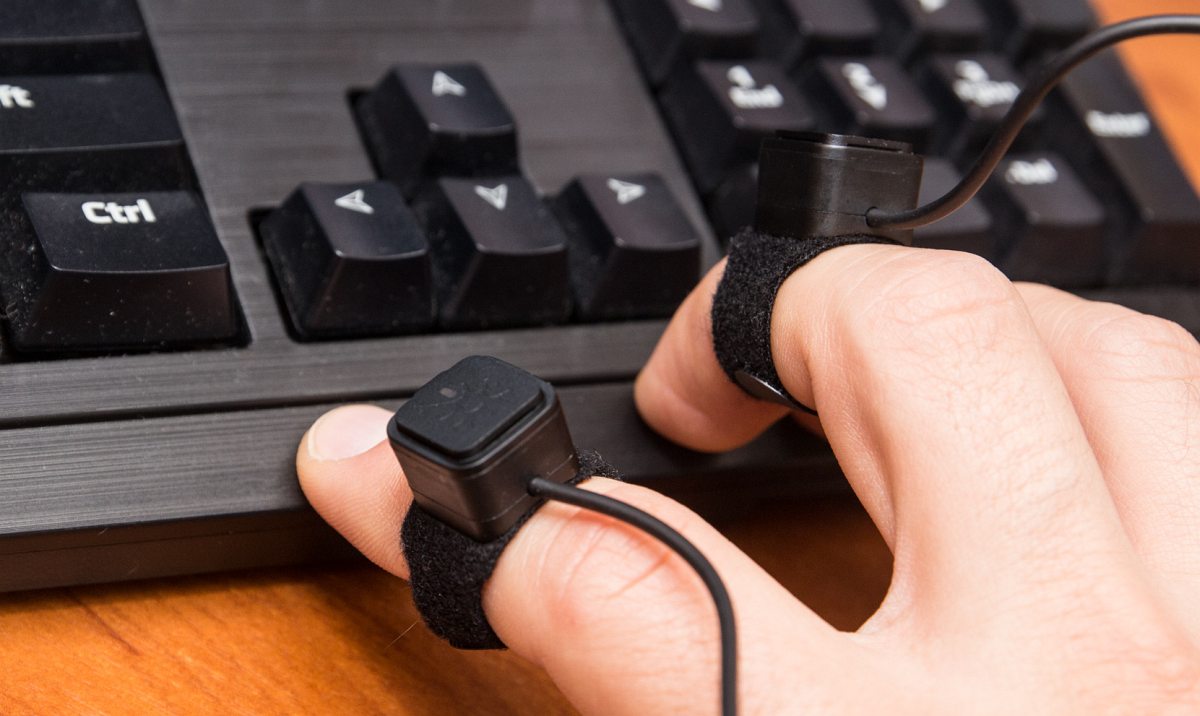
Setting the whole thing up was quite intuitive, although I found the manual quite lacking in detail on how to assemble the cables and put it all together. Just a Quick Start Guide and you're kind of on your own.
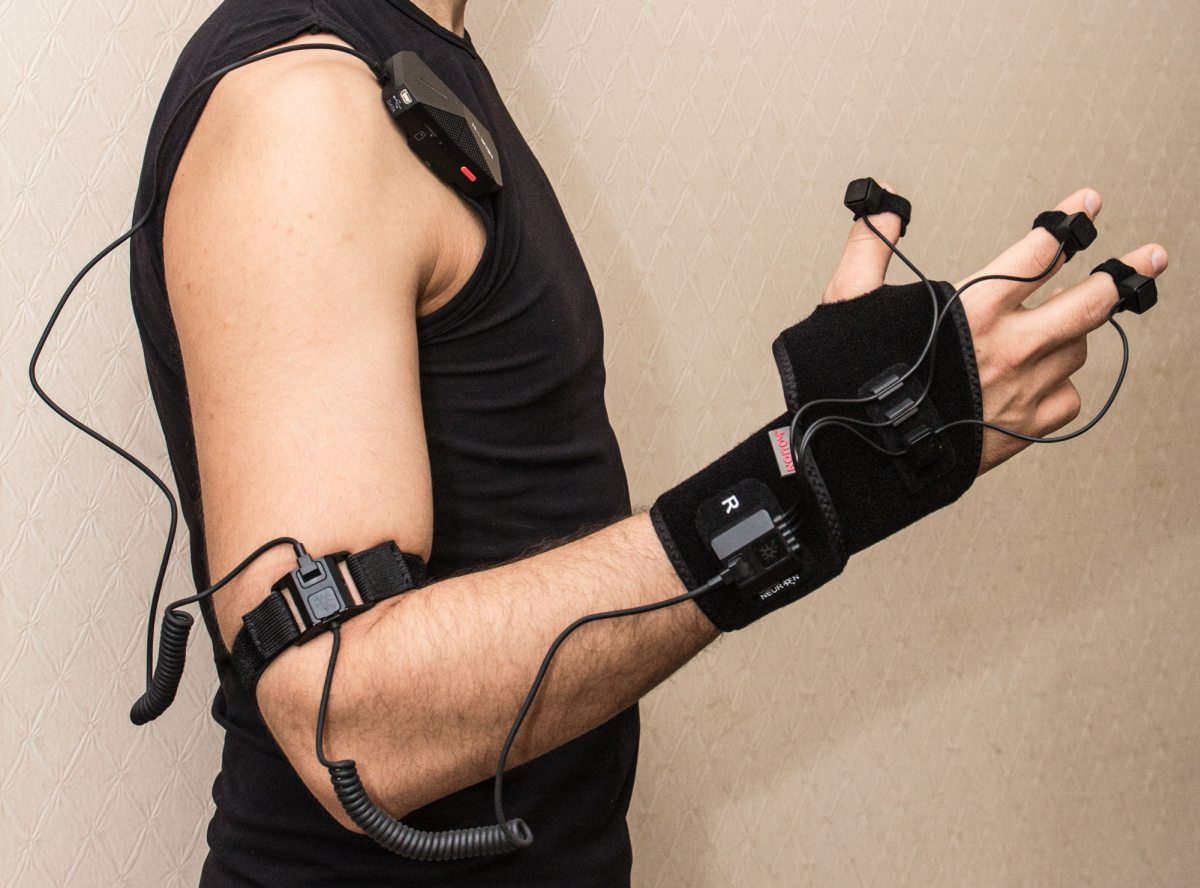
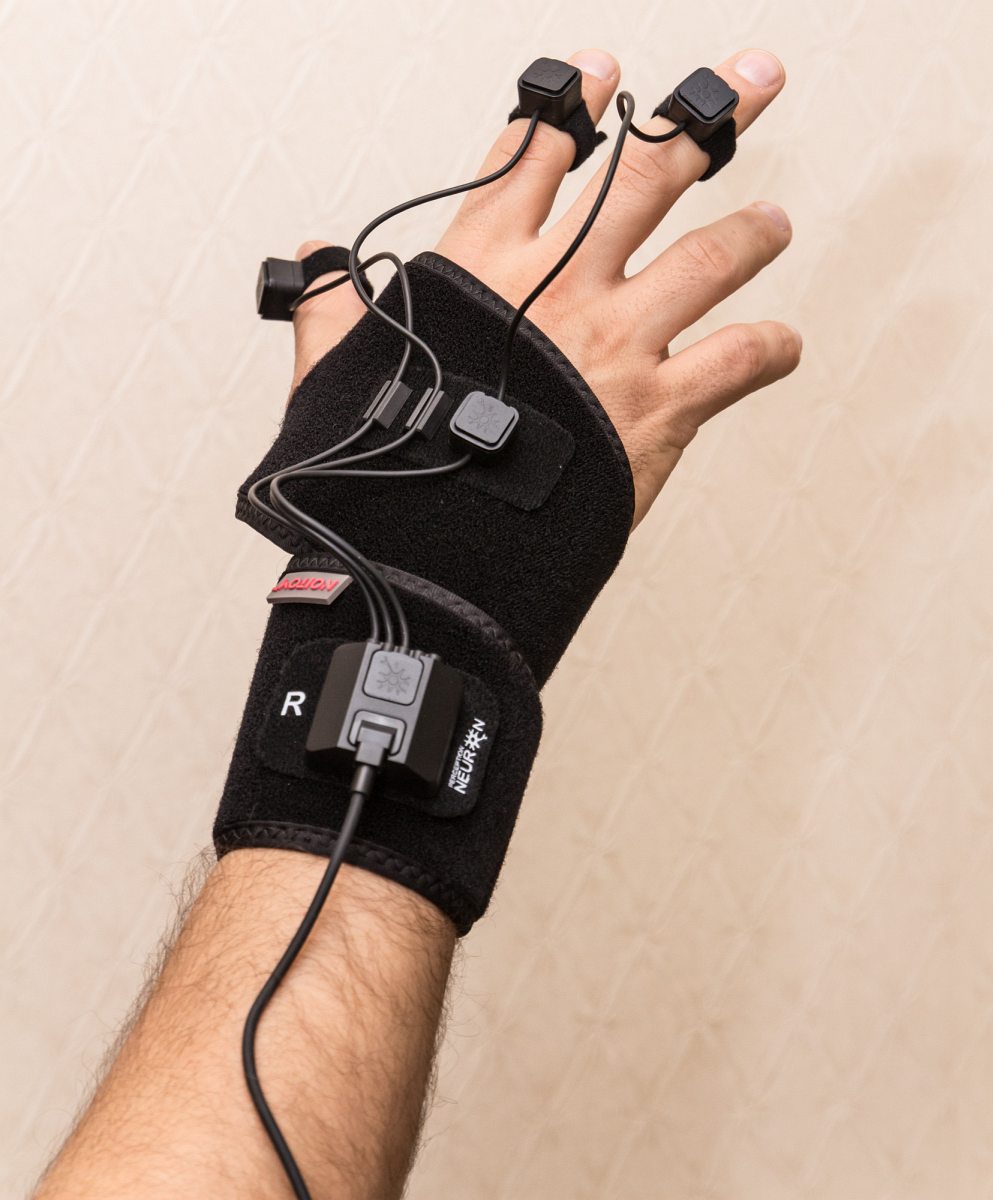
This particular kit doesn't come with a standard glove but rather some sort of a Velcro strap you wrap around your wrist whilst securing it with your thumb. In fact all non-electric elements or connectors have Velcro strips for placing on top of the base elements.
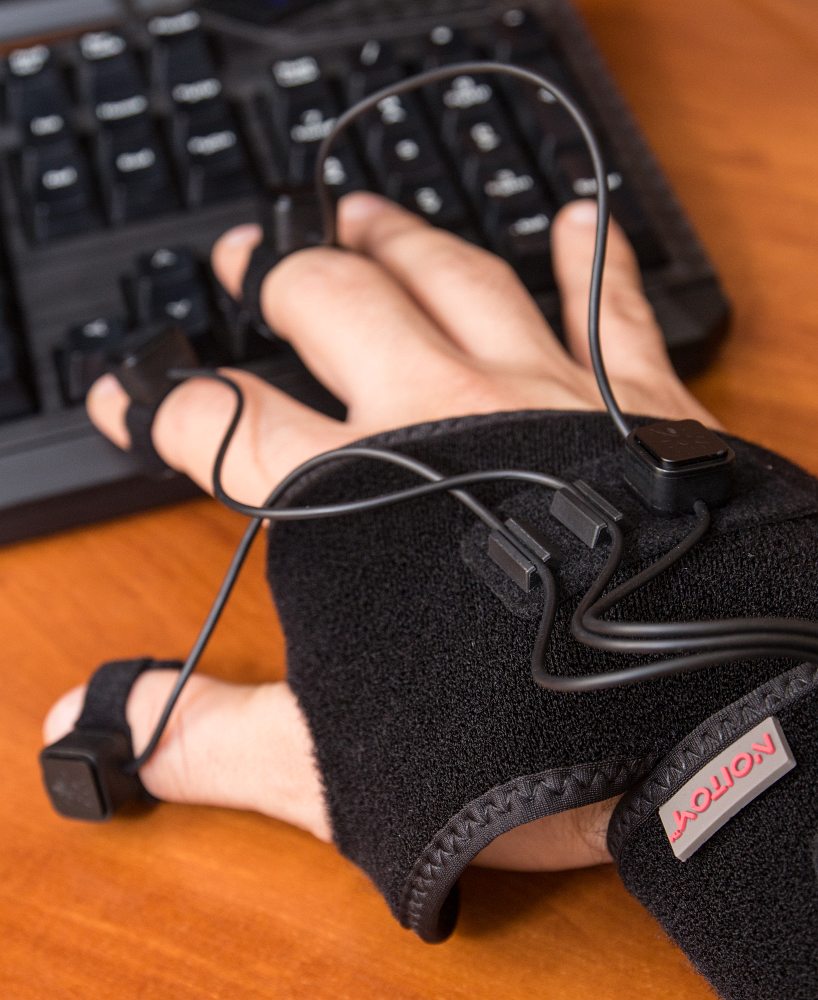
There's also a semi-interactive manual provided with the Axis Neuron software, but it mostly explains how the system works. Axis Neuron is a specialized app by Noitom designed to record and playback the MoCap data from the Perception Neuron system and it works quite well!
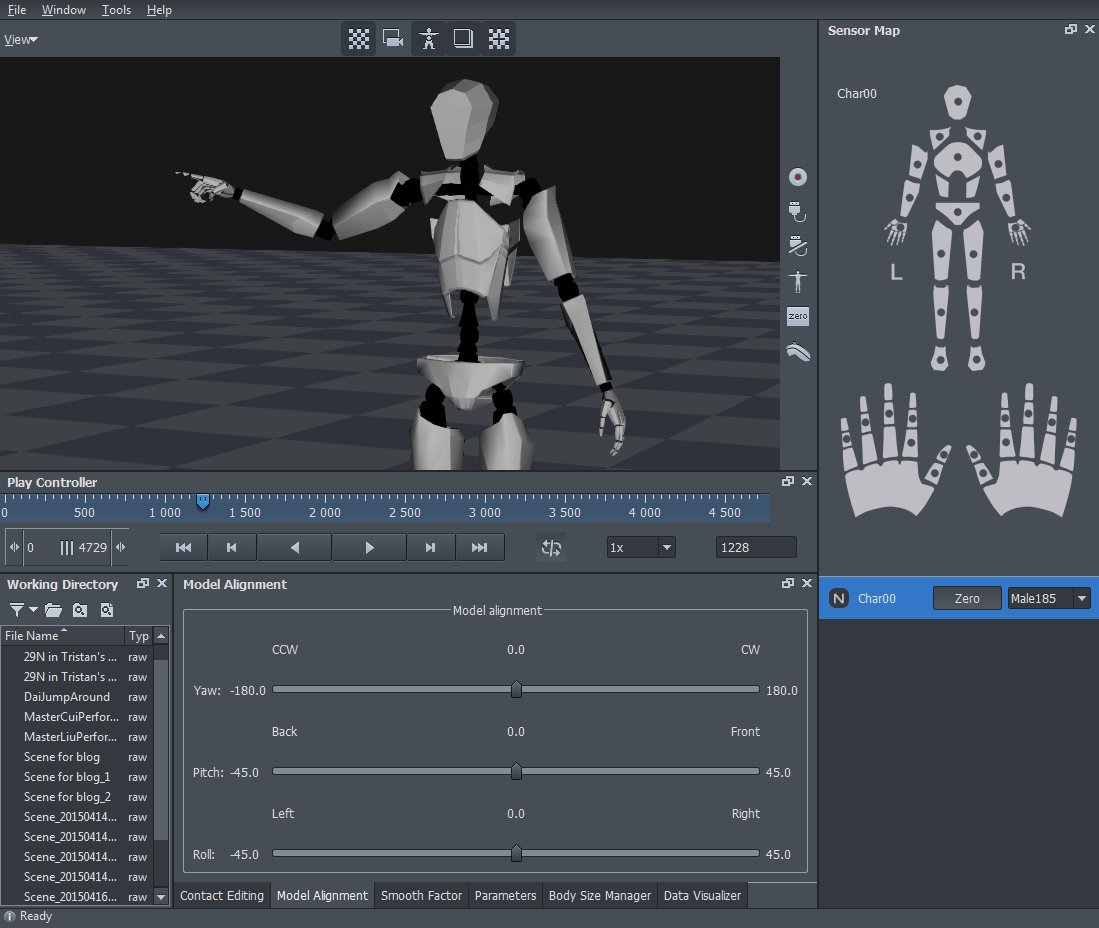
There are two editions: Standard and Pro, the latter costing about 700$ but (in theory) available for free for all Perception Neuron owners. I've contacted support on how to obtain access to the Pro version since it has all bells and whistles including motion smoothing, contact editing and other tools the Standard version is lacking.
UPDATE: Noitom support team replied the very next day with the info on how to receive my copy of Axis Neuron Pro, so now I'm a happy Pro user. Thank you, guys!
After quick set-up and calibration I was actually able to produce a descent take. Here's the raw recording without any smoothing or filtering to showcase what PN is capable of:
All in all, I can definetely say that the system works and can process even relatively fast motion. It will surely come in handy when the time comes to animate the characters in the film, so my next purchase from Noitom will be the 32-neuron full-body MoCap set. Can't wait!